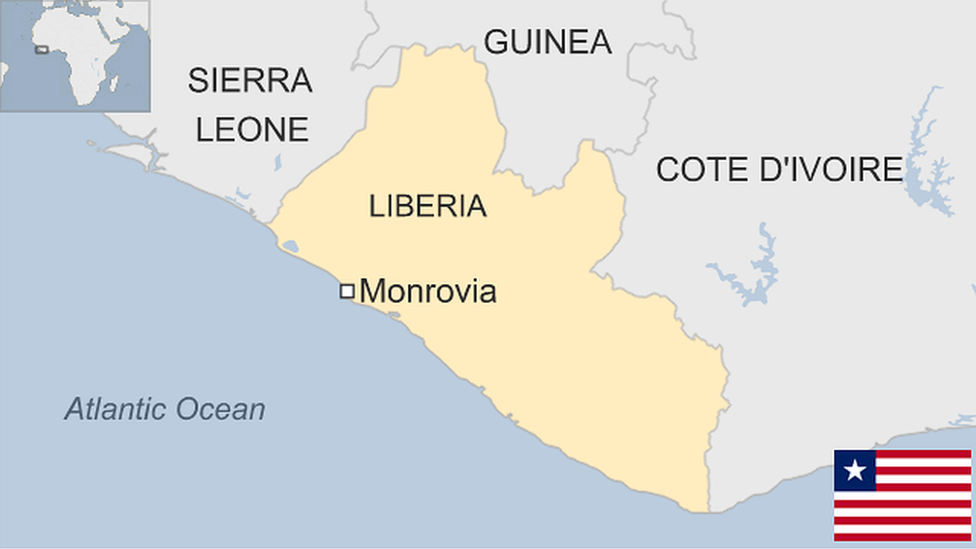Liberia election run-off: George Weah versus Joseph Boakai
- Published
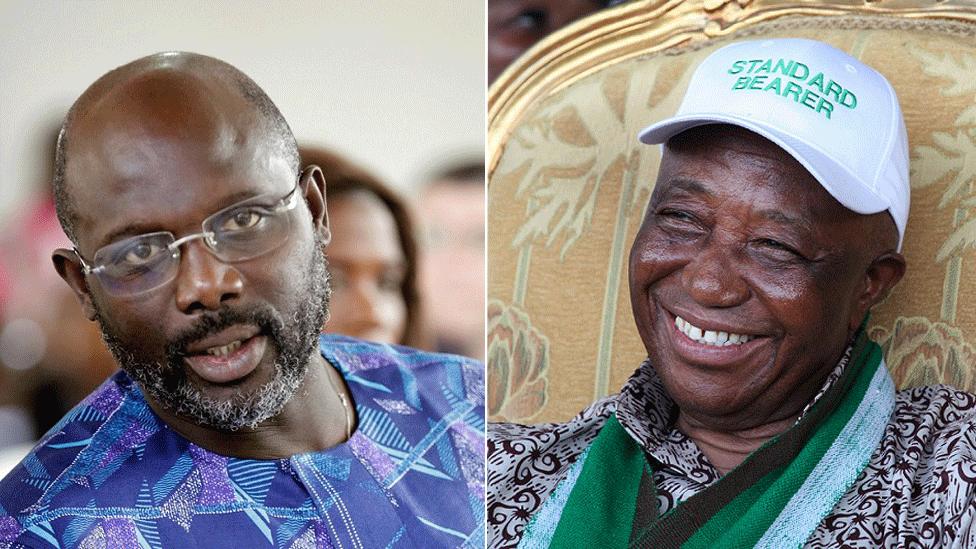
George Weah (L) and Joseph Boakai went head-to-head in the election
The first provisional results from Liberia's presidential election run-off election are due later.
Unofficial results broadcast by local media suggest that ex-football star George Weah is ahead of Vice-President Joseph Boakai following Tuesday's vote.
The electoral commission has warned against "premature pronouncements".
Armed police have been deployed around its headquarters in the capital, Monrovia, ahead of the release of official results.
However, the mood in Monrovia is calm, and people are eagerly awaiting the results, reports the BBC's Jonathan Paye-Layleh from the city.
"The Liberian people clearly made their choice... and all together we are very confident in the result of the electoral process," Mr Weah said on Wednesday.
His supporters had planned a victory parade, but dropped the idea after foreign observers urged them to wait for the official results, our correspondent says.
Mr Boakai said it was premature for Mr Weah's supporters to celebrate, AFP news agency reports.
"We are waiting for the final results. People are talking about Weah, but it's only in his counties but not mine," it quoted him as saying.
Mr Weah, 51, won the first round in October with 38.4% of the vote, compared with the 28.8% of Mr Boakai, 73.
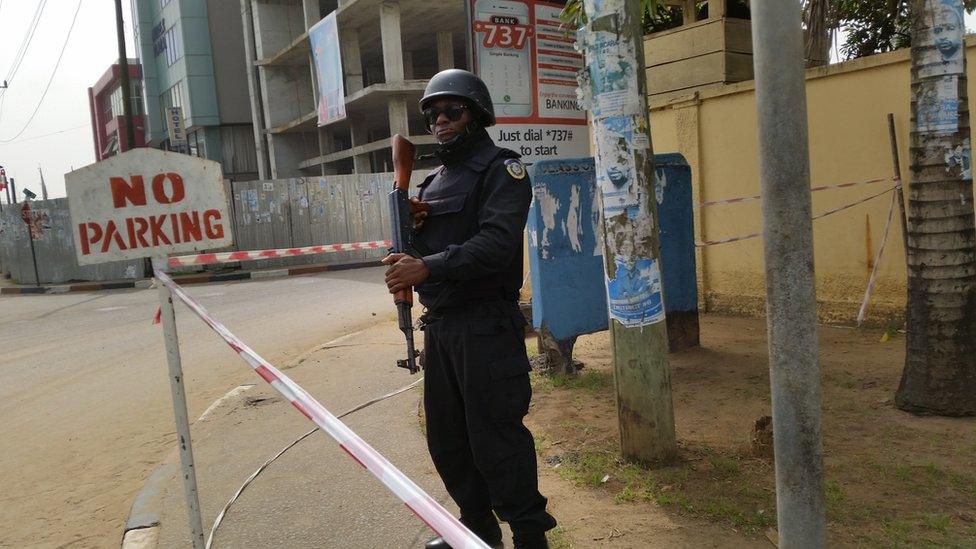
Armed police have been deployed to secure the election commission's headquarters
His failure to secure an outright majority forced a run-off.
Mr Weah played for a string of football clubs, including AC Milan and Paris Saint-Germain, and is the only African footballer to have won Fifa World Player of the Year and the coveted Ballon D'Or in 1995.
He entered politics after his retirement in 2002 and is currently a senator in Liberia's parliament.
The winner of the election will succeed Ellen Johnson Sirleaf, Africa's first elected female president.
She defeated Mr Weah in the presidential election run-off in 2005, after the end of a brutal civil war.
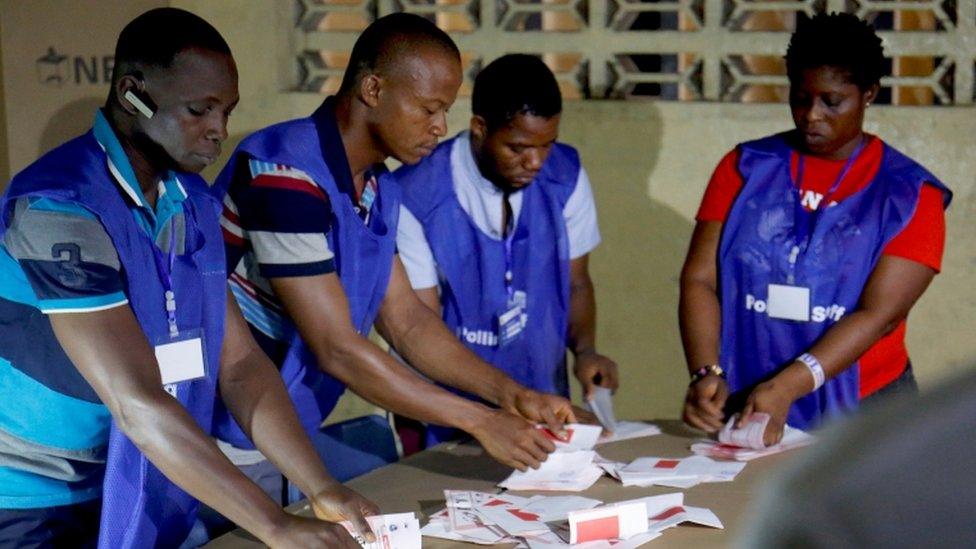
Counting has been painfully slow in Liberia's election run-off
Liberia, founded by freed US slaves in the 19th Century, has not had a smooth transfer of power from one elected president to another in more than 70 years.
Legal challenges delayed the vote to replace Ms Sirleaf, and turnout seemed to have been low.
More than two million people were eligible to cast their ballots in the nation of 4.6 million people.
Ms Sirleaf took office in 2006, after her predecessor, Charles Taylor, was forced out by rebels in 2003, ending a long civil war.
Taylor is serving a 50-year prison sentence in the UK for war crimes related to the conflict in neighbouring Sierra Leone.
Related topics
- Published22 January 2018
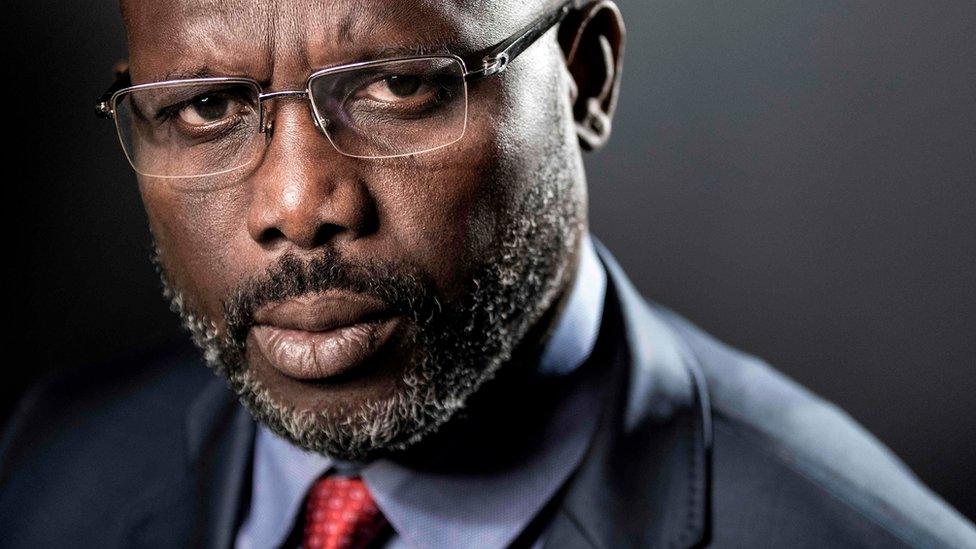
- Published17 November 2023
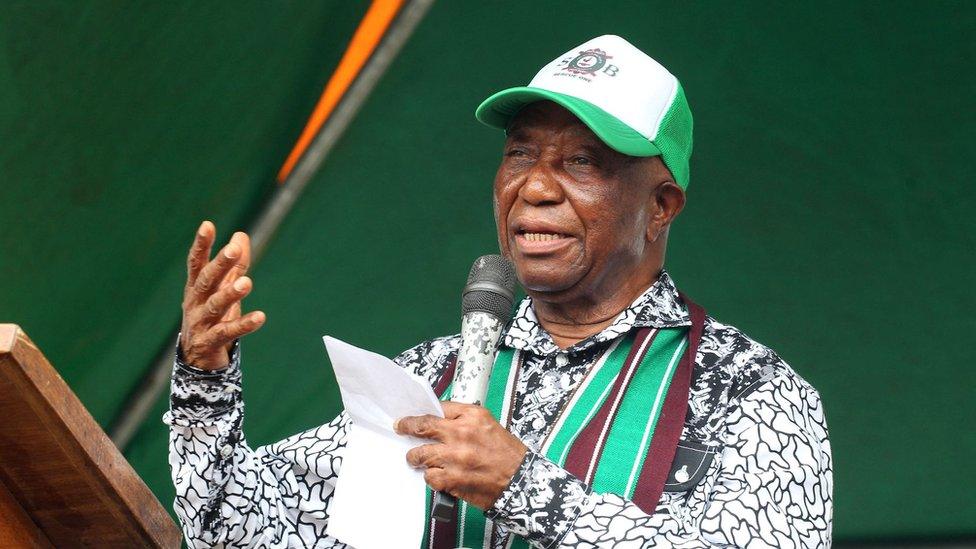
- Published6 October 2017

- Published12 October 2017
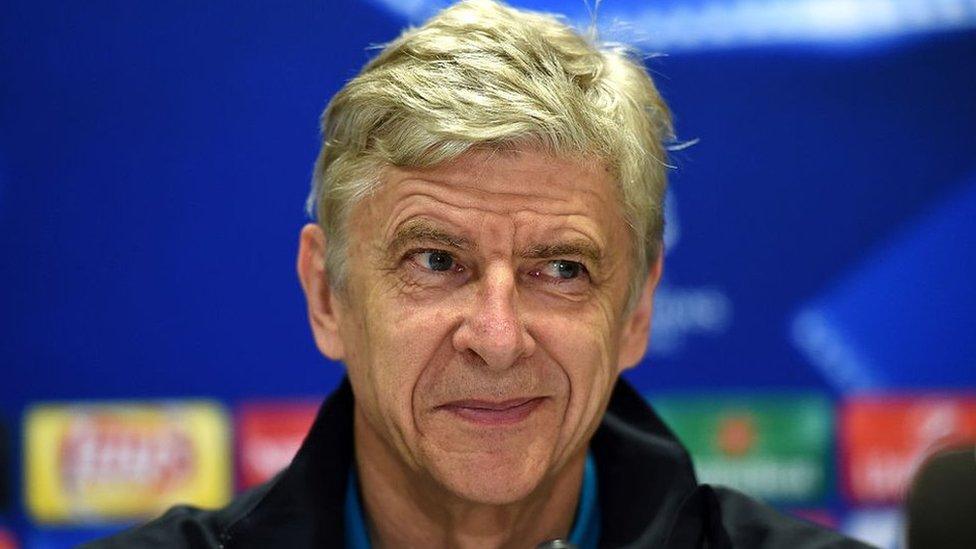
- Published13 February 2024
